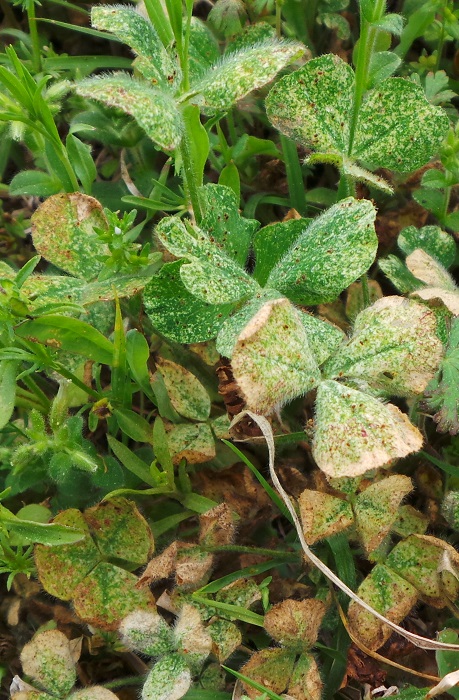
by Doug Mayo | May 8, 2015
The University of Florida IFAS Extension offers a database of fact sheets available for free download on the Internet called EDIS (Electronic Data Information Source) that has many publications of interest to farmers and ranchers in Northwest Florida. Each fact sheet...

by Mark Mauldin | Mar 20, 2015
Just as clover overcomes the cold temperatures and short days of winter a new problem has arrived – legume mites (Petrobia apicalis). These pests which feed on the underside of clover leaves, can cause quite dramatic symptoms in a stand of clover. Almost exactly one...
by Joe Funderburk | Feb 27, 2015
Joe Funderburk, North Florida REC, University of Florida, Quincy and Scott Adkins, USDA-ARS, Fort Pierce, FL Tospoviruses are a group of plant infecting viruses that cause economically significant crop losses worldwide. Tomato spotted wilt virus (TSWV) is the original...
by Russ Mizell | Dec 19, 2014
Russ Mizell, UF/IFAS Professor of Entomology, NFREC Quincy Florida’s climate provides a long and often year-round growing season. Wherever crops are grown they attract insect and disease pests. As a result, growers are confronted with two major problems: detecting...
by Joe Funderburk | Sep 26, 2014
Joe Funderburk, Professor of Entomology, North Florida Research and Education Center, Quincy Kaolin (a naturally occurring mined mineral) is an aluminosilicate particle film that is applied directly onto crops (Figure 1). The film acts through multiple modes of action...
by Josh Thompson | Sep 26, 2014
The white sugar cane aphid is new, devastating pest this year in Florida sorghum. It has moved in from Texas, Louisiana, Mississippi and has been a major problem in Alabama and Georgia as well. For more information about the aphid, see White Sugarcane Aphid Spreading...




